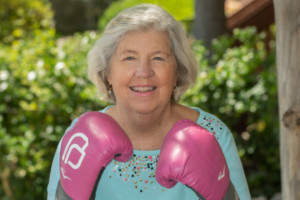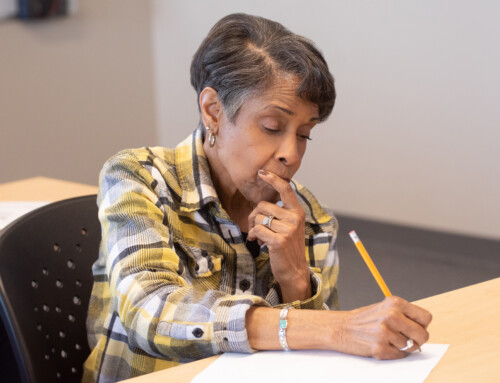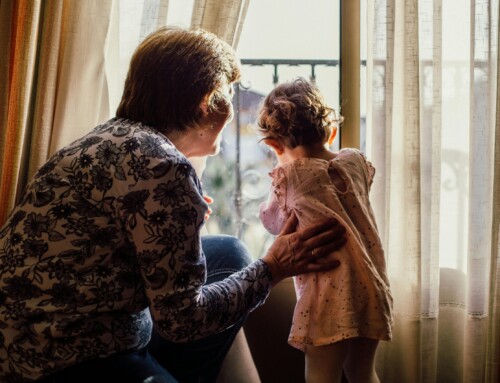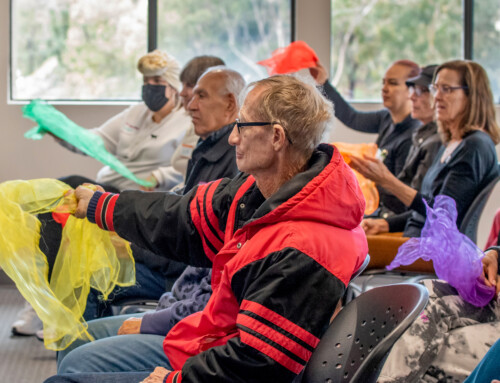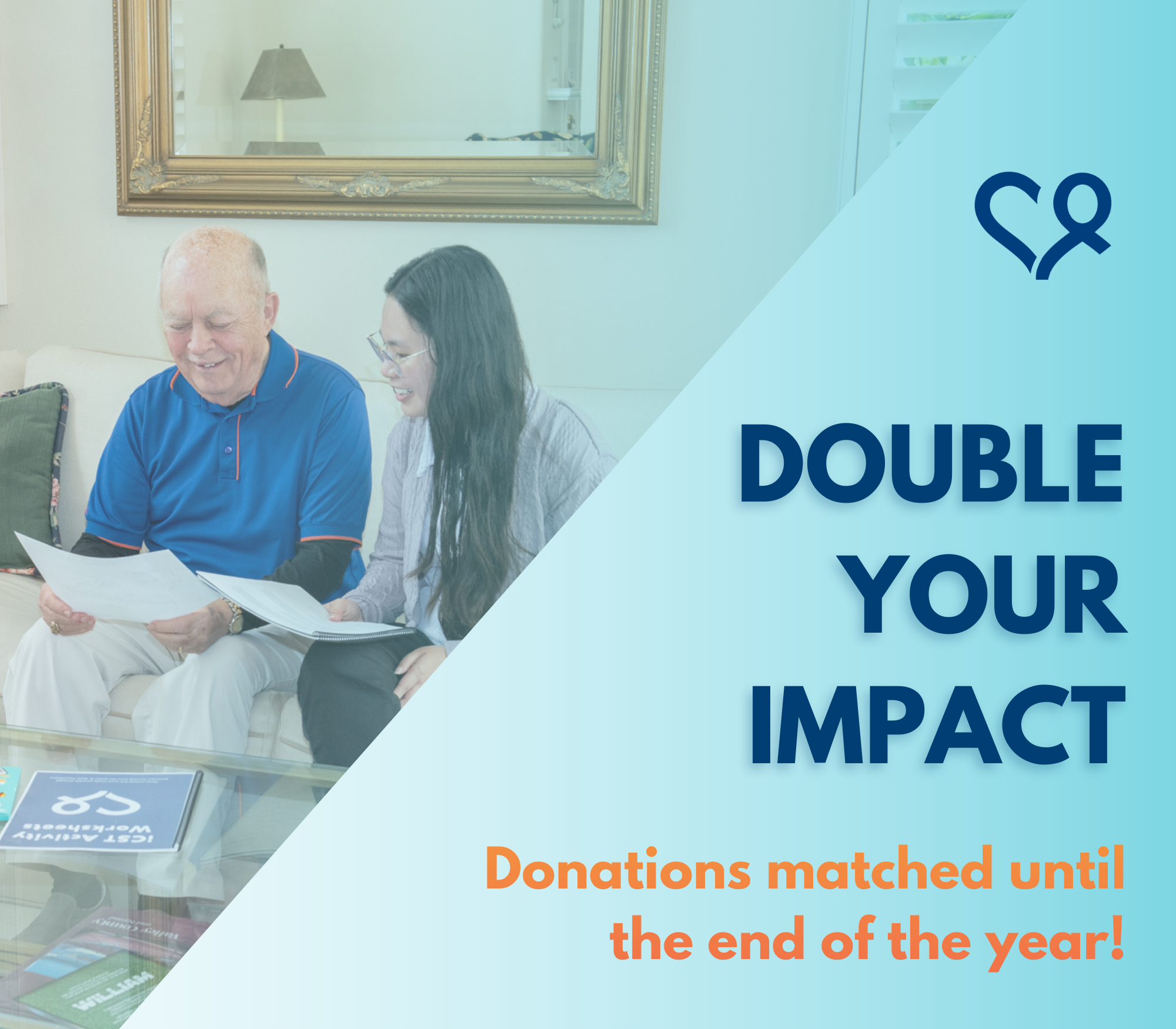Marcia Stanley, age 70, is a lifelong learner and teacher. When she’s not boxing three times a week at Rock Steady Boxing, you can find Marcia singing with her Tremble Clefs singing group, walking with her friends, swimming laps at the YMCA, or coaching private swimming lessons. She’s got a bubbly, yet tenacious personality and enjoys keeping up an active lifestyle. She is also a great storyteller and recently published her own children’s book, “Callum Takes Swimming Lessons”, writing about the fun she experiences teaching one of her many students.
Marcia has always communicated with ease.
“I always felt like I was on stage all day as a teacher…laughing, joking, and smiling to engage my students. It always felt effortless for me. I never had to think about what I wanted to say,” she describes.
And for the past three years, that has still been the case. Many that interact with her are surprised when she tells them in 2018 she was diagnosed with Parkinson’s disease. Marcia does not have the body tremors people often associate with Parkinson’s and still seems to be able to clearly express herself. But in these last few months, Marcia admits its become more difficult for her to find the right words.
“It’s important people know that with Parkinson’s there is not just one aspect that contributes to a diagnosis, there are many manifestations that can come about,” she explains.
Parkinson’s like Alzheimer’s disease is a form of dementia and can be difficult to diagnose. Symptoms of Parkinson’s can include slowed movement, muscle stiffness, impaired posture and balance, loss of automatic movements, and changes in speech and writing.
LEARN MORE | Other types of dementia like Alzheimer’s and Parkinson’s
Marcia initially learned about the resources at Alzheimer’s San Diego as a care partner for her mother. She reached out to the organization to make an appointment for a memory screening, which eventually led to her mother’s official diagnosis of Alzheimer’s. Marcia encourages care partners to reach out and get advice from others that are dementia experts.
“I am lucky that as a caregiver my mother was relatively easy. If I told her we were having oatmeal for dinner she’d go along with it. With her, I found I had to ‘go with the flow’. It didn’t work to impose a strict schedule. I just let the day take its course and tried to consider her needs and desires. I think it is so important to stay extremely open and if you’re not the most easygoing, education is your best weapon! There are tons of free resources at Alzheimer’s San Diego and in the community available to take advantage of,” she notes.
One program Marcia finds especially helpful is the VITALZ (Volunteers in Touch) program which connects a volunteer with Marcia through weekly phone call check-ins.
“Talking with Shellie Norris, the lovely lady who calls me has helped keep me accountable and is such a nice, uplifting part of my day. I am looking forward to meeting up in person with her for the first time soon. ” Marcia says.
LEARN MORE | VITALZ (Volunteers in Touch) Program
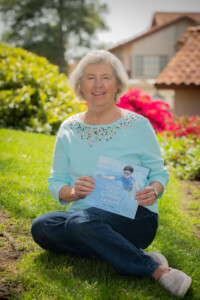 Marcia hopes sharing her story empowers others to take action and get the support they need. She encourages people to get educated and be advocates for themselves at the doctor’s office. Through it all, whether dealing with Parkinson’s or Alzheimer’s disease, Marcia has maintained such a positive outlook and really showcases strength – she is a fighter, to say the least!
Marcia hopes sharing her story empowers others to take action and get the support they need. She encourages people to get educated and be advocates for themselves at the doctor’s office. Through it all, whether dealing with Parkinson’s or Alzheimer’s disease, Marcia has maintained such a positive outlook and really showcases strength – she is a fighter, to say the least!
If you’d like to support Marcia, learn more about her book “Callum Takes Swimming Lessons” here.

